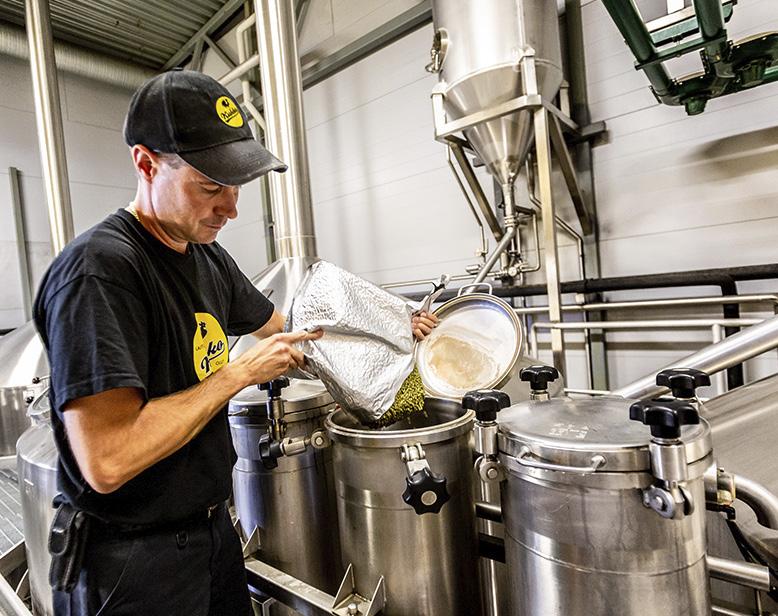
2 minute read
Membrane dealcoholisation for alcohol-free beer
A n independent brewery in operation since 1995, Laitilan has grown to become Finland’s fourth-largest brewery. Its Kukko beer is the world’s first fullmalt beer to receive the international glutenfree product trademark in 2005.
The brewery produces speciality beers, ciders, sparkling wine, soft drinks, waters and long drinks – which totalled more than 20 million litres in 2019.
DEALCOHOLISATION WITH REVERSE OSMOSIS
During a separator installation at the brewery in 2017, plant manager Tommi Suutari asked GEA about possible solutions for beer dealcoholisation. GEA had just developed and launched a new process using membrane filtration. Built on GEA's membrane filtration technology, AromaPlus works via reverse osmosis (RO). This allows alcohol and water to move through while retaining essential ingredients that contribute to aroma, colour and turbidity.
The system achieves the required alcoholfree percentage of 0.5 per cent – down to 0.05 per cent. Several brewing frontrunners have chosen AromaPlus as it delivers in terms of cost and excellent tasting results.
COLD PROCESSING RETAINS FLAVOURS
The cold process with membrane filtration has less impact on beer flavour and aroma is maintained when compared to de-alcoholisation methods, which rely on thermal processes. After a visit to one of the first producers of de-alcoholised beer using the AromaPlus, the Schönbuch brewery in Stuttgart, Laitilan was convinced. GEA product manager Ralf Scheiber explains, ‘We put a lot of effort in developing the new AromaPlus process. We’re seeing that demand for nonalcoholic beer is increasing. Our solution has been well-received and is very much appreciated by breweries and consumers.’
UNIT DESIGN AND LAYOUT
The dealcoholisation unit is mounted on a frame and comes ready for installation. It includes the filtration modules fitted with the special AromaPlus reverse osmosis membranes. The system features pumps for media transport or for providing the required system pressure, internal piping and a CIP dosing unit are installed next to the unit. It also features control technology for semiautomated operation.
In addition to the process, the controller also manages cleaning-in-place (CIP) of the system to ensure proper operation and reliable cleaning of membranes. The modern GEA AromaPlus units have a standardised layout. Depending on size, they are designed for batch processing from approximately 50 hectoliters to more than 600 hectoliters per day. GEA also offers larger de-alcoholisation units for continuous processing of more than 50 hectoliters per hour.
The brewery's de-alcoholisation plant was installed at the end of 2019 with the new products launching early 2020. ‘We're looking forward to starting up with the new products, and we believe that the new equipment will be working hard from the beginning of the year,’ concludes brewmaster Ville Vilen.







